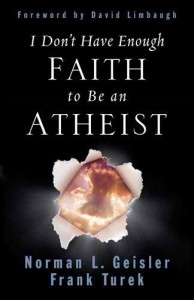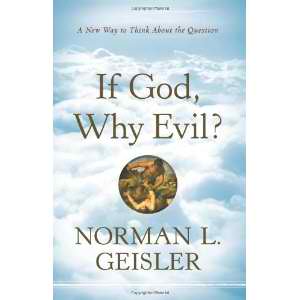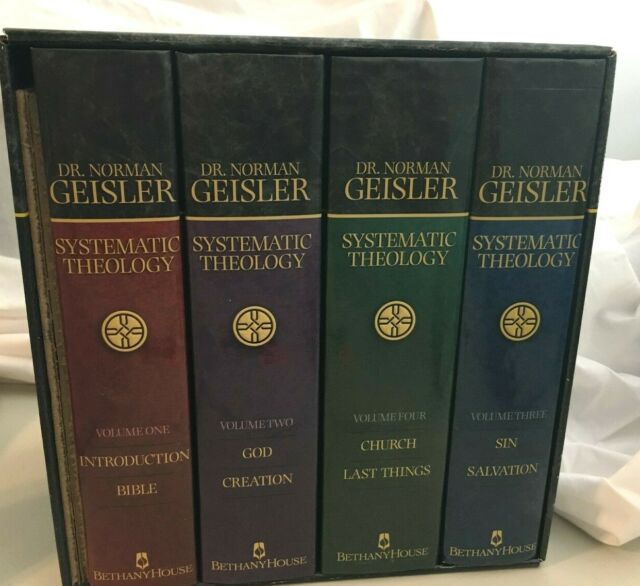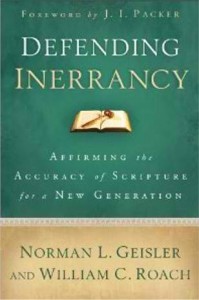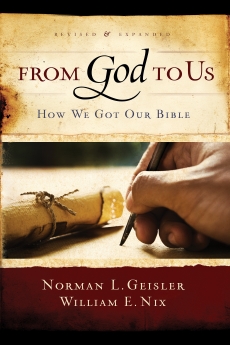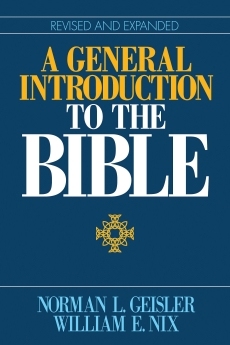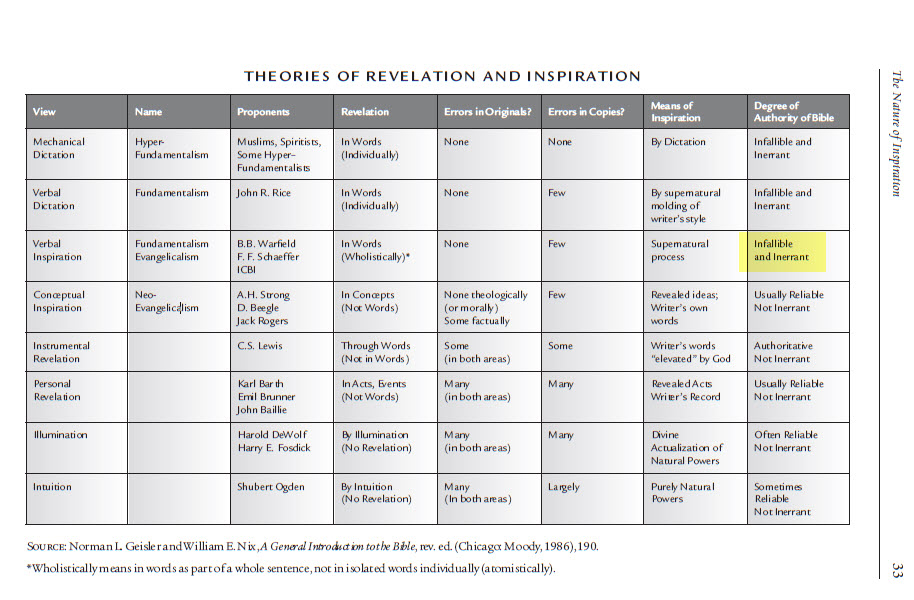The Big Book of Christian Apologetics: An A to Z Guide (or “BOCA”) is a slightly updated (2012) and somewhat abridged version of The Baker Encyclopedia of Christian Apologetics (or “BECA,” 1999). Some footnotes were updated. BOCA has 674 pages and BECA has 864 pages.
Available at: BakerBooks.com and Christianbook.com
Can you explain your faith?
In our pluralistic, post-Christian world, the need to be able to clearly and confidently explain why you believe what you believe has never been greater.
The Big Book of Christian Apologetics is a comprehensive resource designed to equip you with information to help you defend and explain your faith to anyone, anywhere. Examining nearly every key issue, person, and concept related to Christian apologetics, this helpful book
- clarifies difficult biblical passages
- clearly explains various philosophical systems and concepts
- examines contemporary issues and challenges
- offers classic apologetic arguments
It gives you the background you need to intelligently and persuasively talk about your Christian faith with skeptics and seekers in private or in the public square.
Available through Amazon or Alibris
Silver Medallion Award winner
Weighing in at 850 pages, the monumental work has become a standard text in the field and one of the most comprehensive single volumes on apologetics.
“This is a remarkable book in both breadth and depth. I anticipate that it will often be the first reference work I turn to, and I will encourage my students to use it both for the articles and for the bibliographies.”
—Winfried Corduan, professor emeritus of philosophy and religion, Taylor University, Upland, Indiana
“Baker’s Encyclopedia of Christian Apologetics is just what we need. Its author adopts a modern form of Thomism, defending classical apologetics. Yet this work is clear and true-a fine resource for every defender of the faith.”
—David K. Clark, Ph.D.; Director of the Center for Biblical and Theological Foundations, Professor of Theology, Bethel Seminary
“This is an extraordinary helpful resource. A superb job by one of evangelicalism’s premier scholars.”
—Charles W. Colson, Prison Fellowship Ministries
“Nowhere will anyone find more apologetic information than in this volume. Time and again I was impressed with the sheer amount of data that Norm Geisler places at the fingertips of the student. This book will serve as the chief reference work in apologetics for years to come.”
—Gary R. Habermas, Distinguished Professor of Apologetics and Philosophy, Liberty University
“Norman has done it again! He has compiled one of the most thorough and accurate apologetic works to date. The Baker Encyclopedia of Christian Apologetics gives us the tools to share our faith to a broken and skeptical world. It should be a part of everyone’s library.”
—Josh McDowell, author, More Than a Carpenter
“Baker’s Encyclopedia of Christian Apologetics, edited by Norman Geisler, is not only a rich encyclopedia for reference but because of the author’s remarkable penchant for making abstract and difficult truths both comprehensible and applicable to daily life, the book has value to the whole Christian community. Everyone ought to own a copy of Geisler’s Baker’s Encyclopedia of Christian Apologetics.”
—L. Paige Patterson, president, Southwestern Baptist Theological Seminary, Fort Worth, Texas
“There are only a few books I keep right next to my desk – and Norm Geisler’s Baker’s Encyclopedia of Christian Apologetics is one of them. I’m glad it’s a hardcover book, because it gets used all the time. Covering a range of apologetic topics, this is undoubtedly one of the most relevant volumes to come along in decades. I heartily recommend it.”
—Ron Rhodes, PhD; President, Reasoning from the Scriptures Ministries
“From one of the most knowledgeable minds on the subject comes this invaluable resource. I am grateful to Norman Geisler for giving us this great reservoir of information. I will treasure it.”
—Ravi K. Zacharias; President, Ravi Zacharias International Ministries
“One cannot help but be impressed with the scope of subject matter and the thorough way in which each topic is discussed… This volume will be a remarkably helpful tool for anyone interested in these many topics relevant to the defense and understanding of Christianity.”
—Roy B. Zuck, Bibliotheca Sacra
“I can not say enough positive about this work. It is a great addition to the field of apologetics. And because it is so complete, it may be around for a long time.”
—Mal Couch, Conservative Theological Journal
Challenges to Christianity come from a variety of people and belief systems, and Christians are continually searching for the appropriate responses to critics of their faith. Yet until now there has been no definitive one-volume encyclopedia designed to equip believers for Christian defense against the full range of opposing arguments.
The Baker Encyclopedia of Christian Apologetics is such a work. This comprehensive reference volume covers every key issue, person, and concept related to Christian apologetics. Written entirely by leading apologist Norman Geisler, it stands as the culmination of the author’s life-long career and ministry.
The Baker Encyclopedia of Christian Apologetics offers valuable information and advice to a wide audience: pastors and Christian leaders, students on college campuses, those involved in counter-cult ministries-all Christians who encounter skeptics.
The author provides extensive coverage of:
- individuals, such as Karl Marx and C. S. Lewis
- general apologetics topics, such as the types of apologetics and the role of the Holy Spirit in apologetics
- specific challenges, such as the relationship between science and Christianity and the reliability of the Bible
- philosophical systems, such as nihilism and existentialism
- philosophical concepts, such as the principle of sufficient reason and the principle of causality
- biblical issues, such as the resurrection and the date of the exodus
- contemporary concerns, such as the Jesus Seminar and post-modernism
- perennial apologetic arguments, such as the problem of evil and the existence of God
The encyclopedia also features two indexes (subject and Scripture) that allow readers to easily locate the specific information they need.
Also translated into Brazillian Portugese:
http://www.apologia.com.br/?p=35
Enciclopédia de Apologética
Enciclopédia de Apologética
Norman Geisler
Editora Vida
Uma obra de apologética cristã é sempre necessária. Afinal, nunca o cristianismo sofreu tantos ataques vindos de todas as esferas da sociedade como nos dias atuais. Mas, quando essa obra é fruto de pesquisa de um dos maiores apologistas do nosso tempo e já tem alcançado o respeito e a credibilidade merecida no mundo todo, ela se torna imprescindível. Muitos conceitos antibíblicos cercam nossa sociedade. As pessoas abraçam idéias sem ter noção das conseqüências disso para seu futuro. Elas dão as costas à verdade e se inclinam para mitos e teorias que mais agradam aos próprios ouvidos. As religiões e os sistemas filosóficos oferecem de tudo em suas prateleiras. Está tudo aí:
• ateísmo;
• deísmo;
• ceticismo;
• agnosticismo;
• evolucionismo;
• relativismo;
• materialismo e muito mais.
Esta obra expõe esses e outros conceitos importantes que têm moldado a vida de muita gente. Além disso, expõe e apresenta soluções aos problemas levantados em relação à Bíblia que têm causado polêmica ao longo dos anos, dentre os quais destacam-se:
• Como a Bíblia pode ser inerrante se foi escrita por homens falíveis?
• A Criação apresentada em Gênesis 1 é contrária
às descobertas da ciência moderna?
• Como explicar as muitas “contradições” da Bíblia?
A Enciclopédia de apologética também responde às severas críticas a algumas das principais doutrinas do cristianismo:
• Os cristãos copiaram a Trindade do paganismo?
• Jesus é realmente Deus encarnado?
• A ressurreição de Cristo aconteceu mesmo?
• O inferno é compatível com a crença num Deus de amor?
• Os milagres são realmente possíveis?
• As profecias da Bíblia são genuínas ou foram registradas
depois dos acontecimentos?
Você também encontrará informações sobre a vida e o pensamento de pessoas que defenderam a fé cristã contra céticos e opositores. Dentre esses, estão:
• Atanásio;
• Agostinho;
• Tomás de Aquino;
• C. S. Lewis;
• F. F. Bruce e muitos outros.
Você também vai conhecer a vida e o pensamento de alguns opositores do cristianismo, como o filósofo Bertrand Russell, e de outros que contribuíram para pôr em xeque a ortodoxia cristã, como:
• Kant;
• Hume;
• Espinosa;
• Nietzsche e outros.
Nesta obra monumental, Norman Geisler oferece respostas convincentes à luz da Bíblia e da razão para esses pensadores e suas teorias. O autor está convencido de que o que alguém pensa sobre Deus, sobre a Bíblia e sobre a fé cristã vai determinar sua visão
de mundo e, conseqüentemente, sua vida pela eternidade.
Autor
Norman Geisler, deão e professor de teologia e apologética no Southern Evangelical Seminary, Estados Unidos, é um renomado apologista cristão. Escreveu vários livros, entre eles, Eleitos, mas livres; Introdução bíblica (ambos publicados pela Editora Vida).
webmaster on 14 out 2006 | Absurdo do ateísmo & Argumentos ateístas &Confiabilidade da Bíblia&Cristo ressuscitou? &Deus existe? &Livros recomendados &Pluralismo religioso &Problema do mal | Comments (5)

